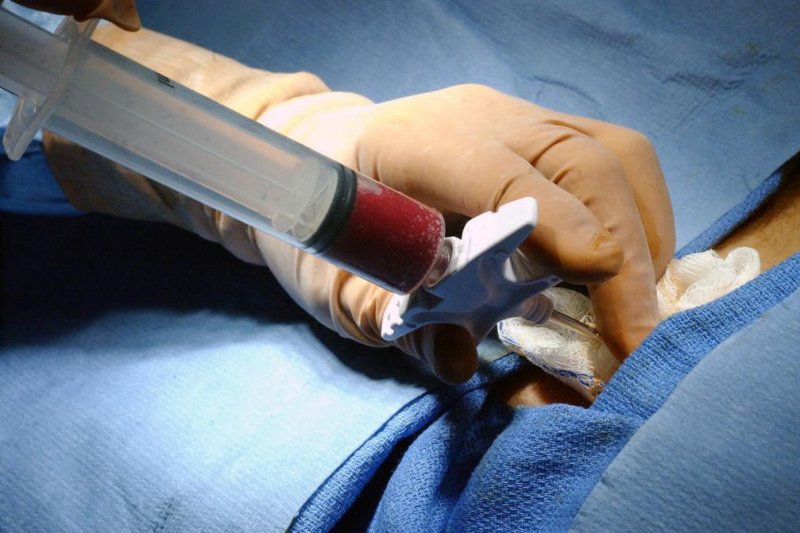Study author Marc Raijmakers says the discovery can diagnose leukemia during an earlier phase, and make treatment more effective. Photo by U.S. Navy.
WASHINGTON, Oct. 3 (UPI) -- Inflammation in bone marrow may be able to predict the development of leukemia, according to a study conducted by the Erasmus MC Cancer Institute.
Researchers have long assumed cancer arises from genetic damage inside individual cells, though recent research has also implicated abnormal signaling in the surrounding tissue.The new study, published in Cell Stem Cell, suggests inflammatory signaling can drive malignancy of bone marrow tumors and predict leukemia.
Leukemia is a type of cancer in which hematopoietic stem cells in bone marrow produce a large number of abnormal white blood cells. According to the new study, mutations in mesenchymal stem cells, also present in bone marrow, can induce malignant changes to hematopoietic stem cells, leading to increased risk of developing leukemia.
Study author Marc Raijmakers and his team assessed the relationship between bone marrow inflammation and leukemia development by using parallel RNA sequencing of mesenchymal cells in mice with the pre-leukemic disorder Shwachman-Diamond syndrome, and bone marrow samples from patients with pre-leukemic syndromes. Researchers found the mesenchymal cells were stressed, resulting in the rise of inflammatory molecules known as S100A8 and S100A9. The inflammatory molecules can in turn cause damage to the hematopoietic stem cells.
Raijmakers says this discovery can help medical professionals diagnose leukemia earlier, and make treatment more effective.
"This discovery sheds new light on the longstanding association between inflammation and cancer," Raaijmakers said in a news release. "The elucidation of the molecular mechanism underlying this concept opens the prospect of improved diagnosis of patients at increased risk for the development of leukemia and the prospect of future, niche-targeted therapy to delay or prevent the development of leukemia."
Raaijmakers went on to call for a follow-up study involving more patients, which he says could provide invaluable data for development new treatment techniques.
"These high-risk patients could be treated more aggressively at an earlier stage, thereby
preventing or slowing down disease progression," he added. "Moreover, the findings suggest
that new drugs targeting the inflammatory pathway should be tested in future preclinical studies."















